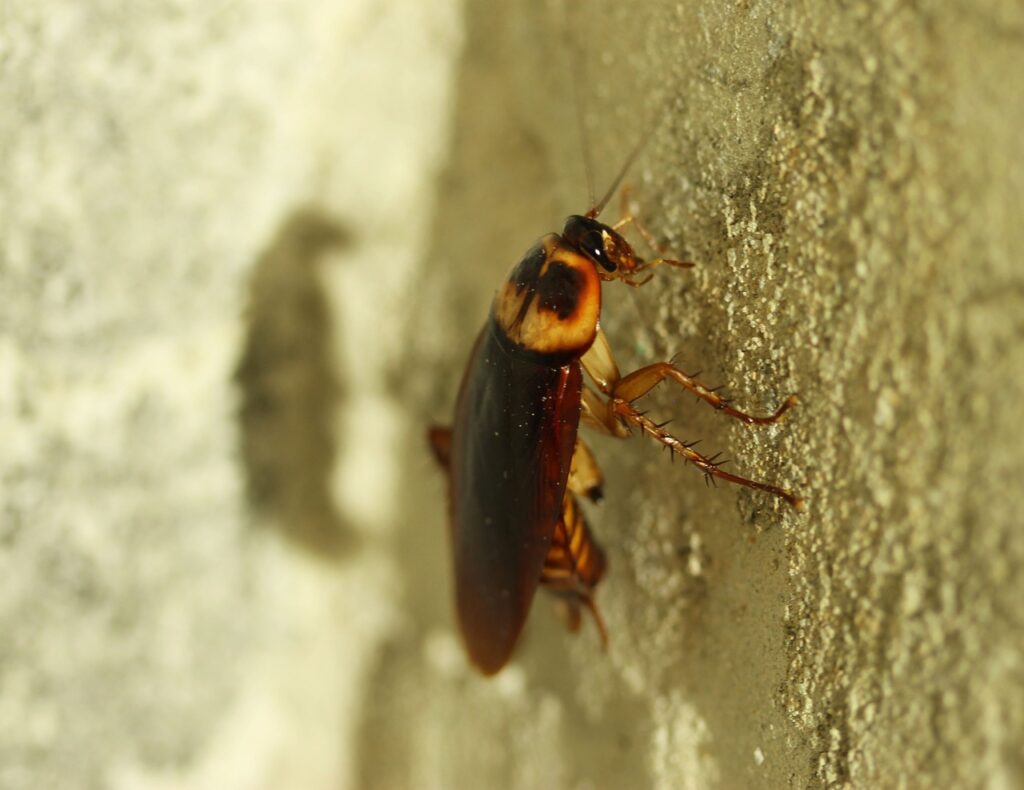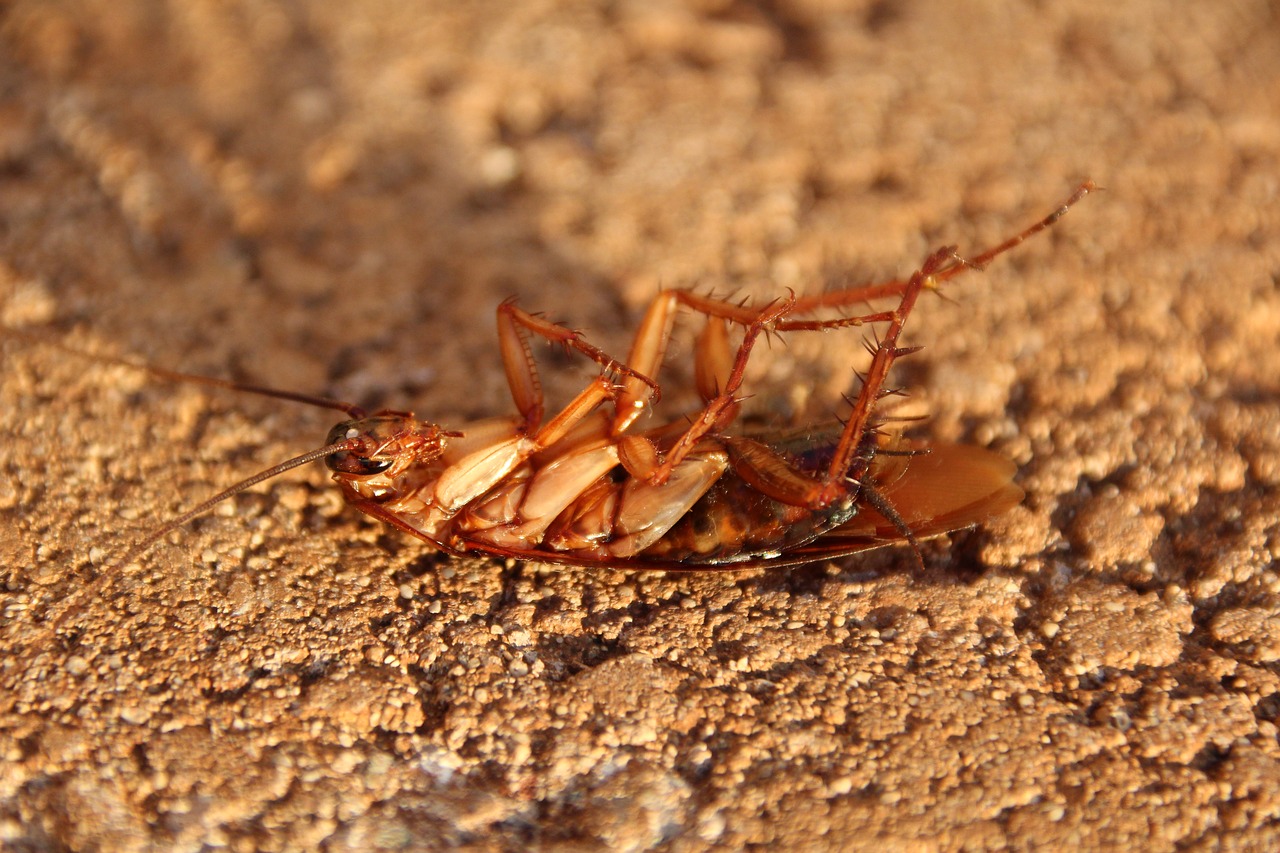Cockroaches are omnivores – they eat meat and plants – and they are not fussy either. Cockroaches are basically scavengers. It’s not uncommon for them to eat their fellow cockroaches too. Since cockroaches are not picky eaters, some questions arise. Do cockroaches bite? Should you be concerned about cockroach bites?
The short answer is yes. Cockroaches do bite and there is reason to be concerned. But it’s more complicated than that.
Why do cockroaches bite humans?
Yes, cockroaches can bite you. But cockroaches biting humans are not very common. They really don’t have a reason to bite you. Cockroaches only bite humans when they are desperate for resources. For example, if there is a terrible cockroach infestation in your home, and if there is not enough food and water around to sustain their population, cockroaches are more likely bite you.
If you are bitten by a cockroach, it’s a sign that your property is suffering from a terrible cockroach infestation. Even if it doesn’t, cockroaches can still bite you if you have leftover food all over your body. This is the reason why most cockroach bites are in faces, mouths, and fingers.
What do cockroach bites look like?
Cockroach bites are bright red marks all over your skin. They look similar to bed bug bites, only a little bigger. Aside from the size, a good indication that the bites are from cockroaches and not from bed bugs is the location.
Cockroach bites are mostly on parts of your body that may have traces of food, like your face, mouth, and fingers. Bed bug bites, on the other hand, can be found on exposed skin, like your arms. Bed bug bites also form a straight line on your skin, as bed bugs move constantly as they bite you.

What are the dangers of cockroach bites?
Cockroach bites are not as dangerous as, say, mosquito bites. We all know that mosquito bites can be extremely dangerous because of the diseases they can carry. But you should still take cockroach bites seriously. Cockroaches are dirty creatures after all. They may carry bacteria and infect existing wounds. Here are the dangers of cockroach bites.
Allergic reaction
Your immune system may act up as your body detects foreign objects. The cockroach’s saliva and the bacteria and feces around the cockroach may get into your body and trigger an allergic reaction. Most of the time, these allergic reactions are not that dangerous. The bites can just become itchy and swell.
But allergic reactions can also be life-threatening. If you experience difficulty breathing or swelling in the throat, seek medical attention immediately. You may be experiencing anaphylaxis.
Infection
Cockroach bites rarely get infected. But once they do, there can be inflammation and pus. Seek medical attention as soon as you can. To avoid infection, wash the cockroach bites with soap and water to remove allergens and bacteria. Also, avoid scratching the affected areas.
Itchiness, pain, and swelling
These are the symptoms you will most likely experience from having cockroach bites. You can treat or ease them with over-the-counter medication or home remedies.
What do you do with cockroach bites?
Sure, cockroach bites are rarely dangerous. But you shouldn’t be complacent. The dangers associated with cockroach bites are real and they can be life-threatening. Here are some things you can do to minimize the risks.
Wash the bites
Wash the affected areas with soap and water to remove allergens and bacteria. Cockroaches have dirty bodies and saliva that could trigger your immune system and cause allergic reactions or infections. The allergens come in the form of proteins in their saliva and the bacteria can lead to serious diseases like salmonella, staphylococcus, and streptococcus.
Try traditional or home remedies
Use over-the-counter medication such as antihistamines and decongestants to combat the symptoms of allergies. You can also try home remedies like ice packs, lemon juice, and aloe vera extracts. They can help ease itching and reduce swelling. But remember that over-the-counter medication and home remedies are only effective in simple cases of cockroach bites. If the cockroach bites trigger an infection or a severe allergic reaction, consult a doctor as soon as you can.
Seek medical attention
If you experience the symptoms of anaphylaxis, like difficulty breathing and swelling in the throat, over-the-counter medication and home remedies will not be enough. Anaphylaxis is considered a medical emergency. Seek medical attention immediately. The allergens in cockroach bites can also trigger asthma attacks.

How do you prevent cockroach bites?
Prevention is always better than cure. Prevent cockroach bites and save yourself the hassle of dealing with their associated dangers. Here are things you can do to prevent cockroaches from biting you.
Clean your surroundings
Keep your surroundings clean and dry, as cockroaches thrive in dirty and damp places. Throw away old items where they can thrive, like cardboard boxes and old newspapers. Don’t let debris go unattended, especially in your kitchen and dining area. A clean home with little to no access to food and water is not an attractive place for cockroaches.
Wash properly before going to bed
Cockroaches are not likely to bite you, especially if there are food and water items around the property. They will only bite you if they are desperate enough for resources or if you directly have food and water debris all over you. This is why it’s very important to wash properly before going to bed. Give particular attention to your face, mouth, fingers, and other parts of your body that may have made contact with food and water.
Get rid of the cockroach infestation
The best way to avoid cockroach bites is to make your home cockroach-free. If you don’t want to be too hands-on, get the help of professional pest controllers to get rid of the cockroach infestation on your property. If you think you can handle the situation yourself, use baits or insecticides, but make sure to read the instructions in their labels to ensure their effectiveness and safety. If you are feeling crafty, there are also DIY ways to get rid of infestations, but they may not be as effective as the other methods and may only work on small infestations.

